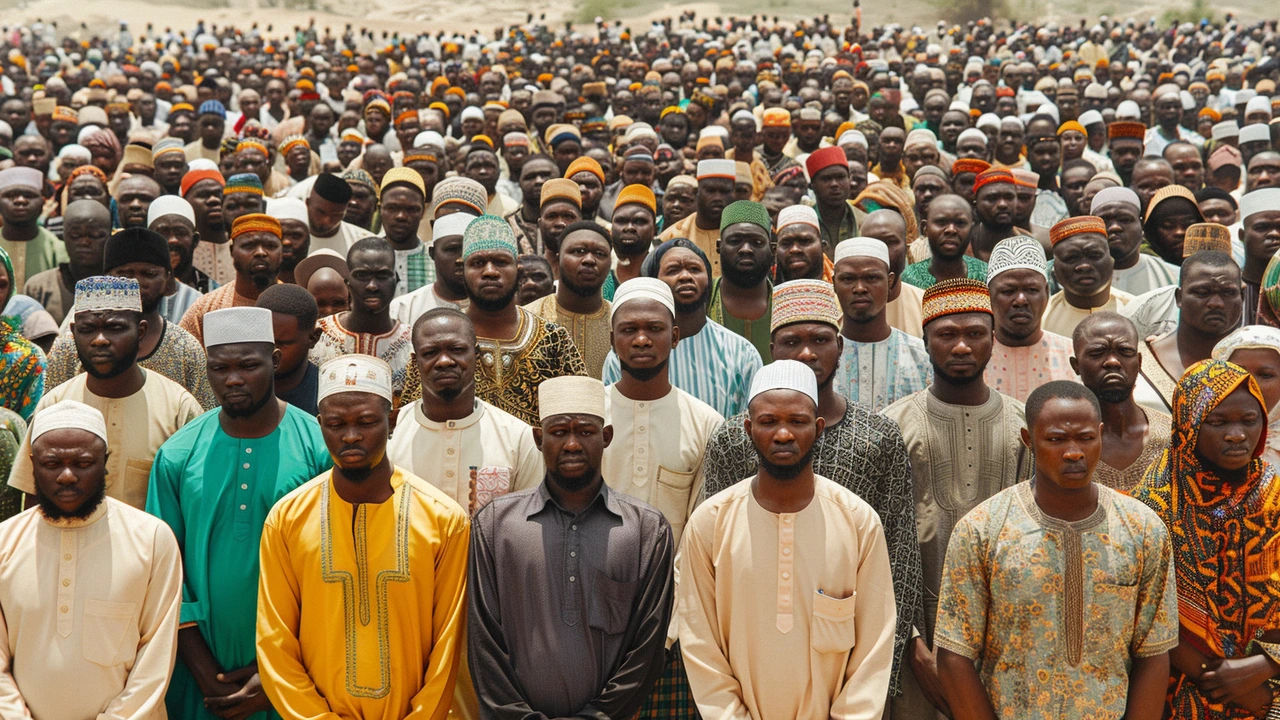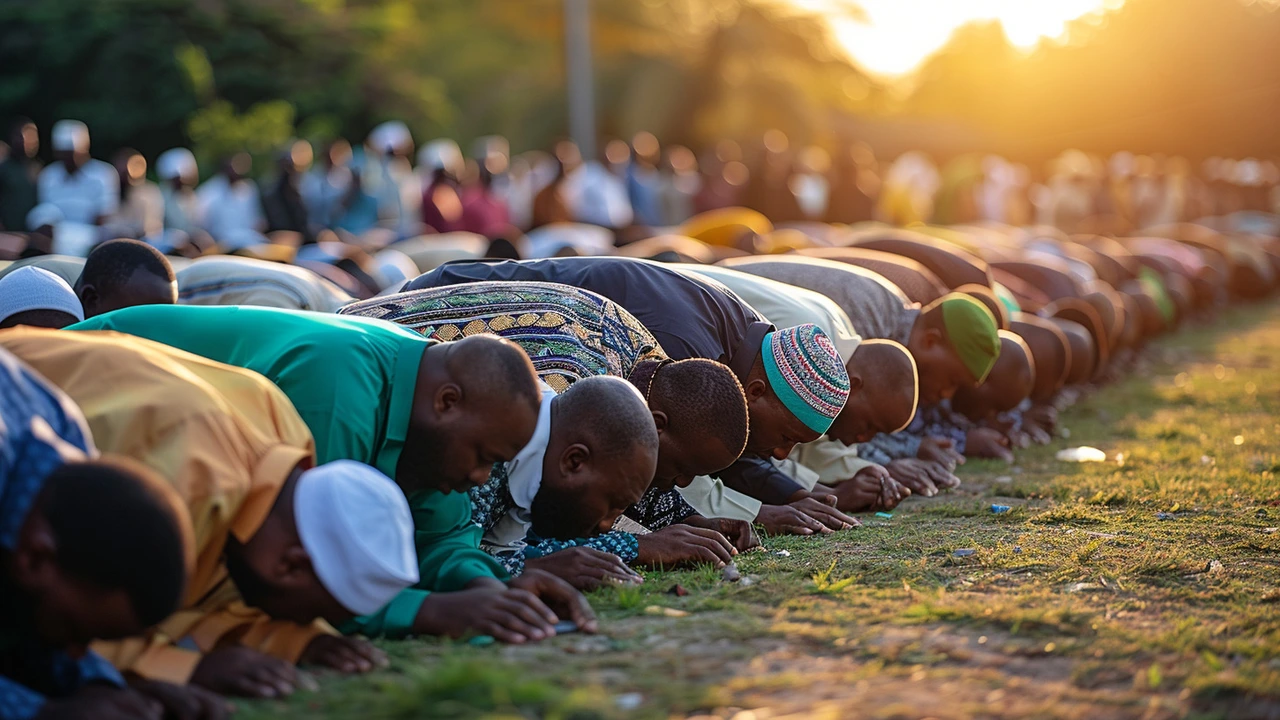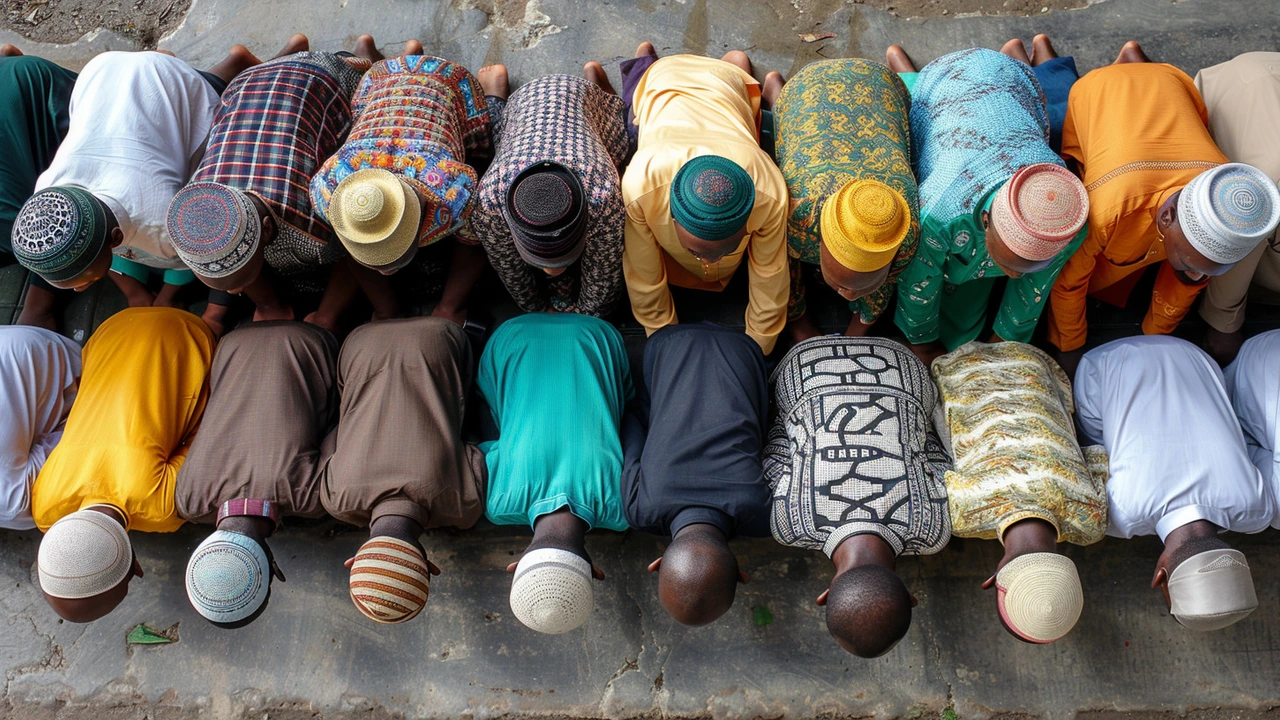
The Spiritual Significance of Eid-el-Kabir
Eid-el-Kabir, also known as Eid-al-Adha, stands as one of the most significant Islamic festivals celebrated globally. The festival commemorates the obedience and faith of Prophet Ibrahim (Abraham), who was willing to sacrifice his son in submission to Allah's will. In recognition of this act of faith, Muslims around the world engage in the ritual of animal sacrifice, symbolizing their dedication and commitment to Allah.
Nine Essential Sunnah Acts
The observance of Eid-el-Kabir is enriched by several Sunnah acts—actions and practices derived from the traditions of Prophet Muhammad (Peace Be Upon Him). These acts, deeply embedded in Islamic customs, intend to purify, express gratitude, and strengthen communal bonds. Here are nine Sunnah acts to perform on Eid-el-Kabir day:
1. Performing Ghusl Before Congregational Prayers
On Eid morning, it's highly recommended to perform ghusl, a ritual purification bath or shower. This act is not merely about physical cleanliness; it symbolizes spiritual purity and readiness to partake in the day's sacred activities. By washing away impurities, Muslims present themselves in a state of physical and spiritual cleanliness, ready to engage in worship and celebration.
2. Fasting Before Leaving for Eid Prayer
Another notable Sunnah act is to refrain from eating until after the Eid prayer. This brief fast, observed from dawn until the conclusion of the prayer, reinforces a sense of piety and commitment. It serves as a reminder of self-discipline and the spiritual significance of the day, fostering a deeper connection with Allah during the celebrations.
3. Wearing the Best Clothes
Muslims are encouraged to wear their finest and cleanest clothes to mark the occasion of Eid-el-Kabir. This tradition of wearing new or well-prepared clothing signifies respect for the festival and the collective joy of the community. The act of dressing up also reflects the gratitude and celebration of the blessings received.
4. Applying Perfume or Fragrance
The application of perfume or any pleasant fragrance before attending the Eid prayer is another important Sunnah. This practice enhances the experience of gathering and worship, making the environment pleasant for everyone. It symbolizes purity and the joy of the day, contributing to a sense of unity and communal celebration.
5. Reciting the Takbeerat After Fajr Prayer
The recitation of the general takbeerat, or proclamations of Allah's greatness, begins after the Fajr (dawn) prayer on the day of Eid. These declarations, undertaken individually or in groups, create an atmosphere of collective worship and remembrance of Allah. The Takbeerat emphasizes the communal spirit and religious fervor of the festival.
6. Taking a Different Route Back from the Mosque
After participating in the Eid prayer, it is recommended to take a different route back home. This Sunnah act, practiced by the Prophet Muhammad (PBUH), has symbolic and practical aspects. It allows worshippers to interact with different people along their route, fostering a greater sense of community. It also symbolizes a renewed path or fresh start, aligning with the themes of sacrifice and new beginnings.
7. Performing the Eid Prayer in Congregation
The Eid prayer is a central element of the celebrations, and performing it in congregation is a cherished Sunnah. The communal prayer, held in open spaces or mosques, emphasizes unity and collective worship. It represents collective joy, shared spirituality, and the communal adherence to Islamic teachings.
8. Connecting with Friends and Family
Eid-el-Kabir is a time to strengthen bonds with family and friends. Visiting loved ones, sharing meals, and exchanging warm greetings are integral parts of the celebration. These interactions reinforce social ties and foster a sense of belonging and community, which are core values in Islam.
9. Exchanging Gifts
The tradition of exchanging gifts during Eid-el-Kabir enhances the festive spirit and joy of the occasion. It symbolizes goodwill, generosity, and mutual respect. This practice also reflects the compassion and empathy central to Islamic teachings, reminding individuals of their duty to share their blessings with others.

The Broader Context of Eid-el-Kabir
Eid-el-Kabir, celebrated over three days, marks the culmination of the Hajj pilgrimage and follows the Day of Arafah. The Hajj is a significant spiritual journey that millions of Muslims undertake to Mecca, representing a once-in-a-lifetime act of devotion for those who are able. The Day of Arafah, which precedes Eid, holds profound spiritual importance as it is a day of forgiveness and prayer.
The three days of Eid-el-Kabir encapsulate a period of intense spiritual reflection, communal worship, and joyous celebration. The ritual of animal sacrifice, typically a sheep, goat, or cow, is performed to symbolize the willingness to part with something valuable in the name of faith and obedience to Allah. The sacrificial meat is divided into three parts—one for the family, one for friends and neighbors, and one for the less fortunate—echoing the themes of charity and community.

Conclusion
As Muslims across the globe prepare to celebrate Eid-el-Kabir, adhering to these nine Sunnah acts brings the deeper meanings of the festival to life. The traditions of purifying oneself, fasting, dressing well, and engaging in communal worship create a tapestry of devotion and joy. The acts of connecting with loved ones, exchanging gifts, and performing rituals mark the festival not just as a religious observance but as a vibrant cultural and social event.
This Eid-el-Kabir, let us remember the core values of Islam—faith, sacrifice, generosity, and community. By embodying these principles, we honor the legacy of the Prophet Ibrahim and the teachings of Prophet Muhammad (PBUH), enriching our spiritual lives and fostering unity and compassion in our communities.
I love how this breaks down the Sunnahs so clearly!! Seriously, ghusl before prayer? Game-changer. And wearing your best clothes? Yes!! It’s not about being fancy-it’s about honoring the day with your whole heart!! 🙌
Why do we even do this? The whole animal sacrifice thing is just a blood ritual the Saudis pushed to keep the pilgrims distracted. They profit off it. You think Allah needs a goat? Come on.
I’ve been doing the different route home thing for years. It’s weird how often you end up waving at someone you’ve never spoken to before. Feels like the Prophet knew we needed more small human moments in our lives. Simple, but powerful.
Ghusl? Really? That’s a Sunnah? I thought it was fard. And perfume? That’s not even in the Hadith. This list is just cultural fluff dressed up as religion.
i never knew about the different route thing… that actually sounds nice. kinda makes me wanna try it this year. <3
This is beautiful. Every single one of these practices is a quiet act of resistance against a world that tells us to rush, to consume, to ignore each other. The takbeerat? That’s collective prayer in motion. The gift-giving? That’s economic justice with a heart. Don’t let anyone tell you this is just tradition-it’s theology in motion.
I’m going to try applying perfume this year. I’ve always skipped it because I thought it was ‘extra,’ but now I see it’s not about being fancy-it’s about joy. Small things matter.
Of course you’re told to fast before Eid prayer. That’s how you make sure you’re hungry enough to appreciate the meat later. Classic psychological manipulation disguised as piety.
Did you know the original Eid sacrifice was never meant to be public? The Hadith says to do it quietly, at home. But now it’s a global spectacle-media companies, meat distributors, even governments profit. The Sunnah got hijacked. They turned a private act of submission into a PR campaign. And now they want you to feel guilty if you don’t do it perfectly.
You people in the West think you know Islam? We’ve been doing this for 1400 years. Your ghusl and perfume? Cute. In India, we sacrifice bulls, feed entire villages, and sing qawwalis till midnight. This list is like a Starbucks version of Eid. Real Muslims don’t need nine bullet points to know what to do.
I must say, this is an impeccably curated list. One might even say, *exemplary*. I have personally observed that the application of fragrance before prayer is not merely a Sunnah, but a divine aesthetic imperative. One does not enter the presence of the Divine in sweatpants and body odor. That is not reverence. That is negligence.
I never thought about the different route thing as symbolic. Just thought it was to avoid traffic. But now that you mention it… yeah, it makes sense. I’ll try it this year.
The perfume thing is so extra. 😒 I mean, why not just spray yourself with Axe and call it a day? Also, who has time to wear ‘best clothes’? I wear the same hoodie every day. Islam is about the heart, not your wardrobe. 🤷♂️
the takbeerat after fajr is my favorite part. just hearing it echo in the neighborhood. no words needed.
why do people make this so complicated? just sacrifice, eat, visit family. why do you need 9 rules? you sound like a checklist app.
I grew up in a household where we didn’t have money for new clothes or perfume. But we always did ghusl. We always recited takbeerat. We always shared our meat with the neighbor who was sick. The Sunnah isn’t about what you can afford-it’s about what you choose to hold onto. This list? It’s not about perfection. It’s about presence.
You’re all missing the point. The real Sunnah here is the *epistemological framework* underpinning ritualized sacrifice. The act is a semiotic rupture in capitalist temporality. You’re not sacrificing a goat-you’re performing a dialectical negation of commodified piety. Also, ghusl? That’s just hydrokinetic purification. You’re not clean-you’re reconstituting your bio-spiritual interface.
I’m just here wondering who decided perfume was a Sunnah. Like, did someone ask the Prophet if they could spray on Dior? I’m not even mad. I’m just disappointed.